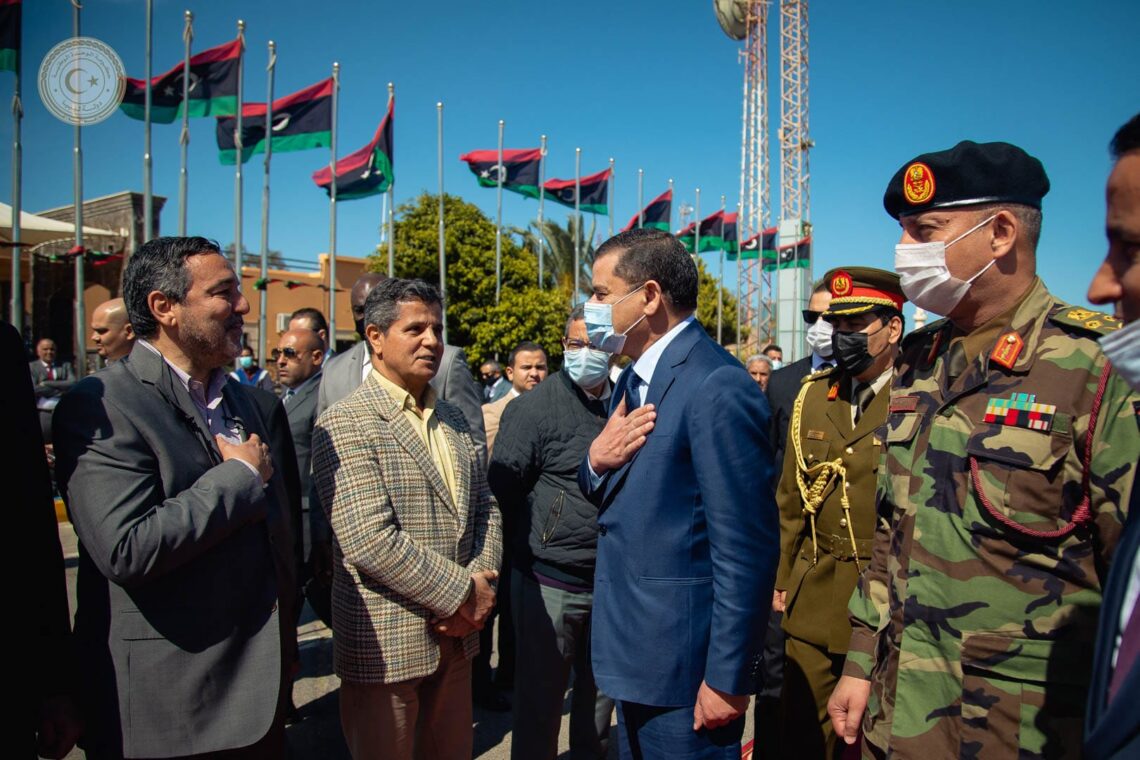A Nation at a Crossroads
On August 16, 2025, Libyans went to the polls for the second phase of municipal elections, a rare and critical exercise in a country fractured by over a decade of conflict and division. With tight security measures in place, the elections unfolded against a backdrop of arson attacks, armed assaults, and political tensions, testing the resilience of Libya’s fragile democratic aspirations. This article dives deep into the significance of these elections, the challenges faced, and what they mean for Libya’s future.
The Context of Libya’s 2025 Municipal Elections
A Divided Libya
Since the 2011 NATO-backed uprising that toppled longtime leader Moamer Kadhafi, Libya has been split between two rival administrations: the UN-recognized government in Tripoli, led by Prime Minister Abdulhamid Dbeibah, and an eastern authority backed by military strongman Khalifa Haftar. This division has fueled instability, with sporadic violence and competing power structures complicating efforts to unify the nation.
The municipal elections, held in approximately 50 municipalities including Tripoli, are seen as a litmus test for democracy in a nation where political processes have often been disrupted by violence and mistrust. For many Libyans, these elections represent a chance to reclaim local governance and address community needs amidst ongoing national turmoil.
Why Municipal Elections Matter
Municipal elections determine who manages government-allocated funds, a critical responsibility in a country where resources are often mismanaged. As Esraa Abdelmomen, a 36-year-old mother of three from Tripoli, put it, “These elections are very important because they decide who will manage government funds.” For residents like Esraa, local elections offer hope for accountability and better services, even as national politics remain gridlocked.
The Stakes: Democracy Under Pressure
A Test of Democratic Resilience
The 2025 municipal elections are not just about local governance; they’re a barometer for Libya’s ability to hold free and fair elections in a volatile environment. The first phase, conducted in November 2024 across 58 municipalities, saw significant participation, but the second phase faced immediate hurdles, with 11 municipalities—mostly in Haftar-controlled areas—suspended due to irregularities like halted voter card distribution.
Security Challenges
Security concerns loomed large as polling stations opened at 9:00 a.m. on August 16, 2025. The Tripoli Security Directorate deployed a heavy police presence to safeguard voters, but the days leading up to the election were marred by violent incidents. Arson attacks in Zawiyah and Sahel al-Gharbi destroyed electoral materials, while armed men stormed the High National Elections Commission (HNEC) office in Zliten, injuring several people. The United Nations Support Mission in Libya (UNSMIL) condemned these acts as “criminal” attempts to disenfranchise voters and undermine democracy.
| Incident | Location | Impact |
|---|---|---|
| Arson Attacks | Zawiyah, Sahel al-Gharbi | Destroyed electoral materials, delayed voting |
| Armed Assault | Zliten | Injuries reported, material damage to HNEC office |
| Suspension of Elections | 11 Municipalities | Irregularities in voter card distribution |
These incidents highlight the precarious balance between democratic ambition and the reality of Libya’s security landscape. Yet, the HNEC’s determination to proceed, backed by UNSMIL’s call for accountability, underscores a collective resolve to push forward.
The Electoral Process: Triumphs and Setbacks
Phase Two of the Municipal Elections
The second phase of Libya’s 2025 municipal elections was initially planned for 63 municipalities—41 in the west, 13 in the east, and nine in the south. However, disruptions reduced the number to around 50, with 26 councils actively voting on August 16. An additional seven municipalities, including Zawiyah, Surman, and Sabratha, saw their elections postponed to August 23 due to the arson attacks. Despite these setbacks, approximately 380,000 registered voters participated, a testament to public enthusiasm for local governance.
Logistical Preparations
The HNEC, led by Chairman Emad Al-Sayeh, has been meticulous in its preparations. Voter registration, which began in February 2025, saw nearly 440,000 voters registered by March. The commission also disqualified 340 candidates who failed to meet eligibility criteria, ensuring a degree of integrity in the process. However, challenges like the attack on HNEC offices and the boycott by key eastern cities like Benghazi, Sirte, and Tobruk underscored the deep divisions within Libya.
Voices from the Ground
For many Libyans, the elections are a rare opportunity to influence their communities. I spoke with a friend, Ahmed, a shopkeeper in Tripoli, who shared his excitement about voting for the first time since 2014. “It feels like we’re finally getting a say,” he said, his eyes lighting up. “But I worry about the violence. We just want to vote in peace.” His sentiment echoes that of many Libyans who see these elections as a step toward stability, even if the path is fraught with obstacles.
The Broader Implications
A Step Toward National Elections?
The municipal elections are a precursor to long-delayed national elections, which have been stalled by the lack of consensual electoral laws. Prime Minister Abdulhamid Dbeibah has argued that security is not the primary obstacle, but rather the absence of fair legislation. The success of these local polls could build momentum for a national vote, though the boycott by Haftar’s eastern administration signals ongoing challenges.
International Support and Criticism
The international community has closely watched Libya’s electoral efforts. UNSMIL has been vocal in its support, commending the HNEC’s resilience and urging Libyan authorities to investigate attacks on electoral offices. Western embassies, including those of the US, UK, France, Italy, and Germany, have also endorsed the process, emphasizing the need for a credible roadmap to broader elections. However, the boycott by eastern cities and accusations of sabotage by Haftar’s forces highlight the difficulty of achieving national unity.
Pros and Cons of the 2025 Municipal Elections
Pros
- Local Empowerment: Gives communities control over local budgets and services.
- Democratic Practice: Builds experience in democratic processes, paving the way for national elections.
- International Backing: Support from UNSMIL and Western nations adds legitimacy.
- High Voter Engagement: Nearly 380,000 voters participated despite challenges.
Cons
- Security Risks: Arson and armed attacks threaten voter safety and process integrity.
- Regional Divisions: Boycotts by eastern cities like Benghazi deepen national rifts.
- Logistical Delays: Irregularities and postponed elections in several municipalities.
- Limited Scope: Only 50 of 63 planned municipalities voted, reducing impact.
Comparison: Libya’s Elections Then and Now
| Aspect | 2012-2014 Elections | 2025 Municipal Elections |
|---|---|---|
| Scope | National and municipal | Municipal only |
| Turnout | Low due to violence | High (380,000 voters) |
| Security | Marred by widespread violence | Tight security, but targeted attacks |
| Outcome | Limited governance improvements | Potential for localized accountability |
The 2012 and 2014 elections, while historic, were overshadowed by violence and low turnout. The 2025 municipal elections, though not without issues, show a stronger voter turnout and a more focused effort to secure polling stations, reflecting cautious progress.
People Also Ask (PAA)
What are Libya’s municipal elections?
Municipal elections in Libya allow citizens to elect local council members who manage community budgets and services. The 2025 elections, held in two phases, aim to strengthen local governance in a divided nation.
Why were some Libyan elections postponed in 2025?
Elections in seven municipalities, including Zawiyah, were postponed to August 23 due to arson attacks that destroyed electoral materials. Additionally, 11 municipalities were suspended earlier due to irregularities.
How does Libya’s division affect its elections?
Libya’s split between the Tripoli-based government and Haftar’s eastern administration has led to boycotts by eastern cities like Benghazi, complicating the electoral process and highlighting national disunity.
Are Libya’s 2025 elections safe?
While tight security measures were implemented, incidents like arson and armed attacks on HNEC offices indicate ongoing risks. The Tripoli Security Directorate intensified efforts to protect voters.
Overcoming Challenges: Stories of Resilience
In Zawiyah, where electoral materials were burned just days before the vote, residents like Fatima, a 42-year-old teacher, remained undeterred. “I walked to the polling station with my daughters,” she told me. “We’ve waited too long for this chance.” Her determination mirrors that of many Libyans who braved threats to cast their ballots. In Tripoli, security forces worked around the clock to ensure polling stations remained safe, a small but significant victory in a country where stability is hard-won.
These stories remind us that democracy, even in its infancy, can inspire hope. The image of families lining up to vote, as captured by AP photographer Yousef Murad, is a powerful symbol of a nation striving to rise above its turbulent past.
Tools and Resources for Following Libya’s Elections
For those interested in staying updated on Libya’s electoral process, here are some reliable resources:
- High National Elections Commission (HNEC): Official updates on election schedules and results. Visit hnec.ly.
- UNSMIL: Provides international perspectives and reports on Libya’s democratic efforts. Check unsmil.unmissions.org.
- The Libya Observer: Local news outlet covering election developments. Available at libyaobserver.ly.
For real-time updates, platforms like X offer insights into public sentiment, though posts should be verified for accuracy. Following accounts like @TheLibyaUpdate can provide timely news, but always cross-check with official sources.
FAQ
1. Why are Libya’s 2025 municipal elections significant?
They represent a rare democratic exercise in a divided nation, offering a chance to strengthen local governance and build momentum for national elections.
2. What caused delays in the 2025 elections?
Arson attacks, armed assaults, and irregularities like halted voter card distribution led to postponements in several municipalities.
3. How is security being managed during the elections?
The Tripoli Security Directorate and other agencies deployed heavy police presence to protect polling stations, though incidents persisted.
4. Can eastern Libya participate in the elections?
Key eastern cities like Benghazi boycotted the vote, reflecting tensions with the Tripoli-based government.
5. What’s next for Libya’s democratic process?
Successful municipal elections could pave the way for national elections, but consensual electoral laws remain a hurdle.
Looking Ahead: Hope Amid Uncertainty
Libya’s 2025 municipal elections, held under the shadow of violence and division, are a testament to the resilience of its people and institutions. While attacks on electoral offices and boycotts by eastern cities highlight the challenges, the participation of 380,000 voters and the HNEC’s commitment to transparency offer glimmers of hope. As international relations professor Khaled al-Montasser noted, these elections will reveal whether Libya’s rival factions are ready to accept leaders chosen by the people rather than imposed by force.
For Libyans like Esraa, Ahmed, and Fatima, the act of voting is more than a civic duty—it’s a statement of defiance against chaos and a step toward a future where communities have a voice. As Libya navigates this turbulent chapter, the world watches, hoping that these local elections might light the path to a more unified and democratic nation.
For further reading on Libya’s political landscape, check out The Libya Observer or follow @UNSMILibya on X for updates.





